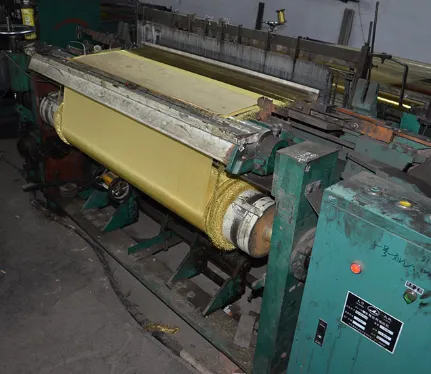May . 21, 2025 17:52 Back to list
Unlock the Potential of Copper Mesh Screen for Premium Performance
In the world of mesh materials, the copper mesh screen stands out for its beauty, functionality, and long-lasting durability. Whether it's being used for insect control, filtration, EMI shielding, or artistic applications, the copper mesh screen combines flexibility with strength like few other materials can. It’s a go-to solution for residential, industrial, and scientific needs, offering both aesthetic appeal and technical excellence.
Cutting Complex Shapes with Copper Mesh Screen Extensibility
One of the greatest strengths of the copper mesh screen is its superior extensibility. The mesh is highly flexible, allowing users to cut, bend, and shape it to fit intricate designs and tight spaces. Whether you’re creating custom filtration panels or decorative architectural elements, the screen can be molded without tearing, fraying, or losing structural integrity.
For fabricators, artisans, or engineers, this feature is invaluable. A copper wire mesh screen can be precisely cut using hand tools or advanced machinery such as laser cutters and water jets, making it ideal for customized applications. Complex shapes that would be difficult to achieve with more rigid materials are no challenge for a high-quality copper screen, which maintains its form without sacrificing function.
Standards That Define High-Quality Copper Screen Performance
To ensure optimal performance across industries, the copper mesh screen must meet strict quality standards. Top-tier copper screen products typically conform to ASTM B36 standards, which ensure that the copper used is at least 99.9% pure. This high purity not only enhances conductivity but also contributes to the screen's natural antimicrobial and corrosion-resistant properties.
Mesh count — the number of openings per linear inch — is another critical measure. The copper wire mesh screen is available in a range of configurations, from 4 mesh (for coarse protection) to 100 mesh (for fine filtration or electromagnetic interference shielding). Wire diameter and weave type also affect performance and should be selected according to application needs.
By purchasing from reputable copper mesh screen manufacturers that adhere to international quality and environmental standards, buyers can ensure long-term reliability and excellent ROI.
How to Select a Superior Copper Wire Mesh Screen
Choosing the right copper wire mesh screen requires a balance of visual quality, structural soundness, and functional fit. Start by confirming that the mesh has a uniform weave and clean, unbroken wire strands. A smooth, polished finish without discoloration or oxidation is also a sign of a premium product.
For outdoor applications or high-humidity environments, look for versions with added coatings or corrosion treatments. A copper fly screen mesh, for instance, is often enhanced to resist weathering while keeping its elegant bronze color for longer periods. This makes it perfect for residential screens, garden fencing, or decorative enclosures.
Indoor users might prefer lightweight, high-mesh-count products ideal for fine particulate filtration or electromagnetic shielding. In every case, selecting the proper copper mesh screen is key to maximizing performance and minimizing maintenance.
The Versatility of Copper Fly Screen Mesh Across Industries
From residential to industrial, the copper fly screen mesh is being recognized for its versatility. In homes, it's used as a natural insect repellent—thanks to the mild electric charge that copper emits, which is unpleasant for pests like flies, mosquitoes, and slugs. It can be installed on windows, doors, vents, and patio enclosures while adding a warm metallic finish to the design.
In science and technology, copper wire mesh screen plays a vital role in shielding sensitive equipment from electromagnetic interference. Its high conductivity ensures signal integrity in research labs, data centers, and electronics production facilities.
The decorative appeal of the copper screen also makes it popular in modern architecture. Designers use it in lighting fixtures, wall art, and room dividers to create elegant, earthy aesthetics that combine form and function. In all these applications, copper’s natural antimicrobial properties offer the added benefit of a healthier environment.
Copper Mesh Screen FAQs
What makes the copper mesh screen better than alternatives like aluminum or stainless steel?
The copper mesh screen offers better flexibility, higher conductivity, and natural antimicrobial properties compared to aluminum or stainless steel mesh, making it more suitable for shielding, decorative, and insect control purposes.
Is the copper wire mesh screen suitable for outdoor use?
Yes, the copper wire mesh screen performs excellently outdoors. It develops a natural patina over time that protects it from corrosion, and additional treatments are available for applications in harsh weather environments.
Can I cut the copper fly screen mesh into small and detailed shapes?
Absolutely. The extensibility of copper fly screen mesh allows it to be cut into very complex shapes without fraying, making it perfect for precision installations, decorative designs, or artistic projects.
How can I ensure I'm buying a high-quality copper screen?
Check for uniform weaving, wire diameter consistency, and certifications such as ASTM B36. Reputable copper screen suppliers often provide technical specifications, test reports, or sample products.
What industries benefit most from using copper mesh screen?
A wide range of industries, including construction, electronics, agriculture, and interior design, benefit from copper mesh screen thanks to its unique combination of durability, flexibility, and aesthetic appeal.

share
-
What Factors Influence Gabion Mesh Price and Sizing?
NewsJun.23,2025
-
What Factors Impact the Selection and Cost of Gabion Products?
NewsJun.23,2025
-
What Are the Key Uses and Considerations for Gabion Products?
NewsJun.23,2025
-
What Are the Key Applications and Benefits of Welded Mesh Gabion Baskets and Related Solutions?
NewsJun.23,2025
-
What Are the Key Applications and Benefits of Gabion Solutions?
NewsJun.23,2025
-
What Are the Key Applications and Advantages of Welded Wire Gabion Baskets and Related Solutions?
NewsJun.23,2025

